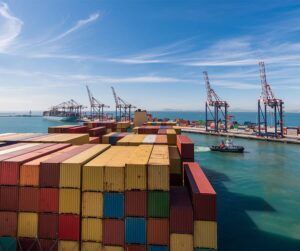This article will highlight some of the steps that can be taken by relevant authorities on the African continent to ensure that trade barriers become a thin layer, as there are many obstacles to effective trade within the African continent, and most of these obstacles, referred to as trade barriers, will require strict measures from relevant authorities to ensure that African countries maximize opportunities available to them through intra African trade.
Due to the numerous trade hurdles, African nations trade the least among themselves when compared to other regions.
- 10 Greatest Footballers from Africa
- 12 Most Talked About Musicians in Nigeria
- 10 Heads of States that Visited Zambia and What They Promised
When we discuss trade barriers, we are referring to the two types of trade restrictions that different governments use: tariff barriers and non-tariff barriers, or NTBs.
NTBs are barriers that arise from the various economic measures and policies taken by governments such as specific requirements, subsidies, prohibitions, regulations, laws, restrictions and the likes that protect domestic industries from foreign competition while Tariff barriers include taxes, custom duties and the likes.
According to a 2021 UNCTAD report estimates, addressing NTBs across Africa can bring gains of $20 billion each year to the African Continental Free Trade Area, AfCFTA member states.
Eliminating these trade barriers (both NTBs and Tariff barriers) on the African continent is quite important as trade holds the key to faster growth and development hence the following measures must be considered to bridge the trade gap among nations of Africa.
1. Trade Facilitation
Trade facilitation has been identified as a critical tool for competitive regional trade strategies in Africa and it attracts a more stable financial capital and promotes economic activity, employment opportunities, competition, education, foreign exchange earnings, technology transfer, income and growth potentials.
Using trade facilitation in lifting trade barriers will require the inputs of the governments and other relevant stakeholders to take up such actions as amendment of existing legislation and regulation to improve the efficiency of operations at border posts and ports as well as effective implementation of existing legal frameworks.

When trade facilitation is explored, small and medium scale enterprises benefit immensely across the continent and production becomes enhanced and in turn, the cost of moving goods across borders reduces greatly thereby boosting exports and increasing access to importation of raw materials.
However, in the exploration of trade facilitation especially in the 21st century, simplification and modernisation of procedures must be considered as the world is going digital.
2. Implementing the Single Window System
The Single Window is a trade facilitation tool that comes in handy as a platform for an electronic exchange of trade information between participants in the trade process.
It helps to enhance regional collaboration on exchange of trade information and can be a major instrument to support regional integration.
The actualisation of a single window system will help remove trade barriers and also ensure rapid and accurate payment of required duty and other charges to government authorities and agencies, provide up-to-date information on tariff rate and other related procedural requirements, make service providers to be accurate, faster and accountable and in the long run encourage more intra-African trade.
Through the single window system, countries can standardise documents to resolve issues regarding bureaucracy, corruption and delays in processing trade documents.

Knowing the benefits and other developmental gains that could accrue though the system, most African countries in recent times have risen to the occasion of launching and implementing the single window system in their countries.
3. Harnessing Emerging Technologies
Facilitating effective trade and lifting barriers in recent times warrants the use of emerging technologies and Africa cannot be left behind.
It was in the light of this that the African Union Panel on Emerging Technologies (APET) urged African countries to adopt emerging technologies such as blockchain technologies to address trade barriers which are negatively impacting Africa’s cross-border trading activities.
When such technological innovations are considered, African countries can effectively integrate border agencies to accomplish efficient trade flows by enabling enhanced coordination as well as improved cross-border controls thus making it easy on traders.
To achieve this, African governments need to provide adequate digital infrastructure such as low data tariffs, good internet services which would enable as many as possible to leverage on the digital trade options.
This list is non exhaustive as there remains several other measures in removing trade barriers which are also as effective as those mentioned above.
Governments across the continent, businesses in the private sector, and others are therefore accountable for acting responsibly. This includes adopting the necessary corrective measures to ensure intercountry connectivity and build infrastructure that is essential for the continent’s economic development.

